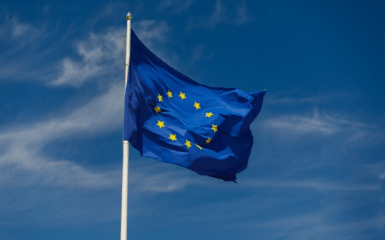The European Union foreign ministers will adopt the 15th package of sanctions against Russia on December 16. They also plan to discuss the situation in Syria, Ukraine, and Georgia.
Points of attention
- The adoption of the 15th package of EU sanctions against Russia includes restrictions on the 'shadow fleet' and sanctions against North Korean officials and Chinese companies that support Russian aggression.
- Senior EU and US officials are announcing their intentions to increase sanctions pressure on Russia in order to weaken the influence of the Kremlin and dictator Putin.
- A peaceful resolution of the conflict in Ukraine is being postponed due to the need to achieve peace, and Russia has shown no desire to do so.
- Joe Biden's administration is considering tougher sanctions on Russian oil trade in an effort to weaken Putin's war machine.
- The process of adopting new sanctions against Russia in the United States is under development, but official Washington is considering restrictions that could affect Russian oil exports.
What is known about the new EU sanctions package against Russia?
As the EU High Representative for Foreign Affairs and Security Policy, Vice-President of the European Commission Kaia Kallas, stated during a conversation with journalists, the new sanctions package will include:
restrictions for the so-called "shadow fleet"
sanctions against North Korean officials, as well as against Chinese companies that support Russian aggression.
This is a clear signal: everyone who contributes to the continuation of this war must pay their price, Kallas noted.
Regarding the possible deployment of European peacekeepers in Ukraine, Kallas emphasized that this will only be possible after peace is achieved, which Russia currently does not seek.
"First, we need peace to talk about peacemakers. However, Russia does not demonstrate any desire to achieve peace. This is obvious if you look at least at Lavrov's interview with Tucker Carlson, where they clearly state that they are not going to back down from their goals," said Kaia Kallas.
The US wants to increase sanctions pressure on Russia
According to insiders, the White House may impose tougher sanctions against Russia's lucrative oil trade.
The main goal of Joe Biden's administration is to weaken dictator Putin's military machine before Donald Trump returns to the US presidency.
What is important to understand is that the details of possible new sanctions are still being worked out, but official Washington is currently considering restrictions that could affect some types of Russian oil exports.
According to anonymous sources, the current American leader hesitated to make this decision for a long time due to fears that it could provoke a jump in energy prices, especially on the eve of last month's presidential election.
But with oil prices plunging amid a global glut and growing concerns that Trump may try to force Ukraine into a quick deal with Russia to end the nearly three-year war, the Biden administration is now open to more radical action.




